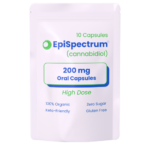Cancer Care Article





The current state and future perspectives of cannabinoids in cancer biology
Source:
https://onlinelibrary.wiley.com
Link:
https://onlinelibrary.wiley.com/doi/10.1002/cam4.1312
The article discusses the growing interest in the medical applications of Cannabis plants, particularly in the context of cancer treatment. It explores the various types of cannabinoids, their receptors, and their role in the endocannabinoid system, emphasizing the therapeutic potential they hold in multiple medical fields, including cancer treatment. Cannabinoids are categorized into phytocannabinoids (from Cannabis plants), endocannabinoids (produced naturally in the body), and synthetic cannabinoids. They interact with cannabinoid receptors (CB1 and CB2) in the body, affecting various physiological processes. While there are conflicting data on the role of the endocannabinoid system in cancer development, cannabinoids have demonstrated anticancer effects in preclinical studies and animal models. These effects include inhibiting cancer cell proliferation, inducing apoptosis (cell death), and suppressing tumor angiogenesis and metastasis. Clinical trials investigating the anticancer effects of cannabinoids are ongoing, with preliminary results showing promising outcomes in certain cancer types. However, further research is needed to establish the efficacy, safety, and optimal dosages of cannabinoid-based treatments in cancer therapy. The article highlights the need for comprehensive clinical trials to validate the potential benefits of cannabinoids in cancer treatment and underscores the importance of understanding their interactions with conventional anticancer drugs and their immunosuppressive effects. Overall, while cannabinoids show promise as anticancer agents, further studies are required to fully explore their therapeutic potential and safety profile.
To date, cannabinoids have been allowed in the palliative medicine due to their analgesic and antiemetic effects, but increasing number of preclinical studies indicates their anticancer properties. Cannabinoids exhibit their action by a modulation of the signaling pathways crucial in the control of cell proliferation and survival. Many in vitro and in vivo experiments have shown that cannabinoids inhibit proliferation of cancer cells, stimulate autophagy and apoptosis, and have also a potential to inhibit angiogenesis and metastasis. In this review, we present an actual state of knowledge regarding molecular mechanisms of cannabinoids’ anticancer action, but we discuss also aspects that are still not fully understood such as the role of the endocannabinoid system in a carcinogenesis, the impact of cannabinoids on the immune system in the context of cancer development, or the cases of a stimulation of cancer cells’ proliferation by cannabinoids. The review includes also a summary of currently ongoing clinical trials evaluating the safety and efficacy of cannabinoids as anticancer agents.







